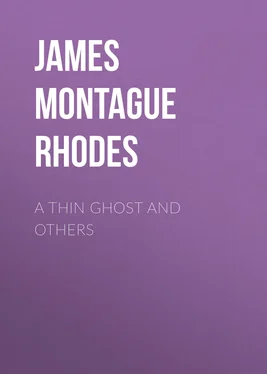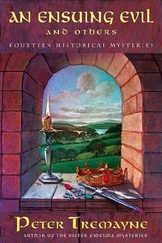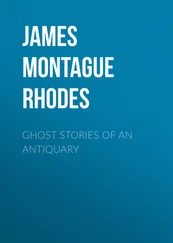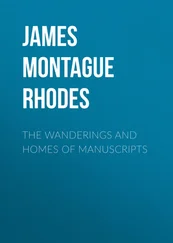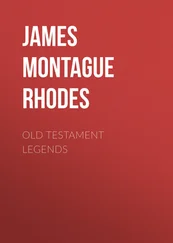Montague James - A Thin Ghost and Others
Здесь есть возможность читать онлайн «Montague James - A Thin Ghost and Others» — ознакомительный отрывок электронной книги совершенно бесплатно, а после прочтения отрывка купить полную версию. В некоторых случаях можно слушать аудио, скачать через торрент в формате fb2 и присутствует краткое содержание. Жанр: foreign_prose, Ужасы и Мистика, foreign_antique, на английском языке. Описание произведения, (предисловие) а так же отзывы посетителей доступны на портале библиотеки ЛибКат.
- Название:A Thin Ghost and Others
- Автор:
- Жанр:
- Год:неизвестен
- ISBN:нет данных
- Рейтинг книги:4 / 5. Голосов: 1
-
Избранное:Добавить в избранное
- Отзывы:
-
Ваша оценка:
- 80
- 1
- 2
- 3
- 4
- 5
A Thin Ghost and Others: краткое содержание, описание и аннотация
Предлагаем к чтению аннотацию, описание, краткое содержание или предисловие (зависит от того, что написал сам автор книги «A Thin Ghost and Others»). Если вы не нашли необходимую информацию о книге — напишите в комментариях, мы постараемся отыскать её.
A Thin Ghost and Others — читать онлайн ознакомительный отрывок
Ниже представлен текст книги, разбитый по страницам. Система сохранения места последней прочитанной страницы, позволяет с удобством читать онлайн бесплатно книгу «A Thin Ghost and Others», без необходимости каждый раз заново искать на чём Вы остановились. Поставьте закладку, и сможете в любой момент перейти на страницу, на которой закончили чтение.
Интервал:
Закладка:
M. R. James
A Thin Ghost and Others
PREFACE
Two of these stories, the third and fourth, have appeared in print in the Cambridge Review , and I wish to thank the proprietor for permitting me to republish them here.
I have had my doubts about the wisdom of publishing a third set of tales; sequels are, not only proverbially but actually, very hazardous things. However, the tales make no pretence but to amuse, and my friends have not seldom asked for the publication. So not a great deal is risked, perhaps, and perhaps also some one's Christmas may be the cheerfuller for a storybook which, I think, only once mentions the war.
THE RESIDENCE AT WHITMINSTER
Dr. Ashton—Thomas Ashton, Doctor of Divinity—sat in his study, habited in a dressing-gown, and with a silk cap on his shaven head—his wig being for the time taken off and placed on its block on a side table. He was a man of some fifty-five years, strongly made, of a sanguine complexion, an angry eye, and a long upper lip. Face and eye were lighted up at the moment when I picture him by the level ray of an afternoon sun that shone in upon him through a tall sash window, giving on the west. The room into which it shone was also tall, lined with book-cases, and, where the wall showed between them, panelled. On the table near the doctor's elbow was a green cloth, and upon it what he would have called a silver standish—a tray with inkstands—quill pens, a calf-bound book or two, some papers, a churchwarden pipe and brass tobacco-box, a flask cased in plaited straw, and a liqueur glass. The year was 1730, the month December, the hour somewhat past three in the afternoon.
I have described in these lines pretty much all that a superficial observer would have noted when he looked into the room. What met Dr. Ashton's eye when he looked out of it, sitting in his leather arm-chair? Little more than the tops of the shrubs and fruit-trees of his garden could be seen from that point, but the red brick wall of it was visible in almost all the length of its western side. In the middle of that was a gate—a double gate of rather elaborate iron scroll-work, which allowed something of a view beyond. Through it he could see that the ground sloped away almost at once to a bottom, along which a stream must run, and rose steeply from it on the other side, up to a field that was park-like in character, and thickly studded with oaks, now, of course, leafless. They did not stand so thick together but that some glimpse of sky and horizon could be seen between their stems. The sky was now golden and the horizon, a horizon of distant woods, it seemed, was purple.
But all that Dr. Ashton could find to say, after contemplating this prospect for many minutes, was: "Abominable!"
A listener would have been aware, immediately upon this, of the sound of footsteps coming somewhat hurriedly in the direction of the study: by the resonance he could have told that they were traversing a much larger room. Dr. Ashton turned round in his chair as the door opened, and looked expectant. The incomer was a lady—a stout lady in the dress of the time: though I have made some attempt at indicating the doctor's costume, I will not enterprise that of his wife—for it was Mrs. Ashton who now entered. She had an anxious, even a sorely distracted, look, and it was in a very disturbed voice that she almost whispered to Dr. Ashton, putting her head close to his, "He's in a very sad way, love, worse, I'm afraid." "Tt—tt, is he really?" and he leaned back and looked in her face. She nodded. Two solemn bells, high up, and not far away, rang out the half-hour at this moment. Mrs. Ashton started. "Oh, do you think you can give order that the minster clock be stopped chiming to-night? 'Tis just over his chamber, and will keep him from sleeping, and to sleep is the only chance for him, that's certain." "Why, to be sure, if there were need, real need, it could be done, but not upon any light occasion. This Frank, now, do you assure me that his recovery stands upon it?" said Dr. Ashton: his voice was loud and rather hard. "I do verily believe it," said his wife. "Then, if it must be, bid Molly run across to Simpkins and say on my authority that he is to stop the clock chimes at sunset: and—yes—she is after that to say to my lord Saul that I wish to see him presently in this room." Mrs. Ashton hurried off.
Before any other visitor enters, it will be well to explain the situation.
Dr. Ashton was the holder, among other preferments, of a prebend in the rich collegiate church of Whitminster, one of the foundations which, though not a cathedral, survived dissolution and reformation, and retained its constitution and endowments for a hundred years after the time of which I write. The great church, the residences of the dean and the two prebendaries, the choir and its appurtenances, were all intact and in working order. A dean who flourished soon after 1500 had been a great builder, and had erected a spacious quadrangle of red brick adjoining the church for the residence of the officials. Some of these persons were no longer required: their offices had dwindled down to mere titles, borne by clergy or lawyers in the town and neighbourhood; and so the houses that had been meant to accommodate eight or ten people were now shared among three, the dean and the two prebendaries. Dr. Ashton's included what had been the common parlour and the dining-hall of the whole body. It occupied a whole side of the court, and at one end had a private door into the minster. The other end, as we have seen, looked out over the country.
So much for the house. As for the inmates, Dr. Ashton was a wealthy man and childless, and he had adopted, or rather undertaken to bring up, the orphan son of his wife's sister. Frank Sydall was the lad's name: he had been a good many months in the house. Then one day came a letter from an Irish peer, the Earl of Kildonan (who had known Dr. Ashton at college), putting it to the doctor whether he would consider taking into his family the Viscount Saul, the Earl's heir, and acting in some sort as his tutor. Lord Kildonan was shortly to take up a post in the Lisbon Embassy, and the boy was unfit to make the voyage: "not that he is sickly," the Earl wrote, "though you'll find him whimsical, or of late I've thought him so, and to confirm this, 'twas only to-day his old nurse came expressly to tell me he was possess'd: but let that pass; I'll warrant you can find a spell to make all straight. Your arm was stout enough in old days, and I give you plenary authority to use it as you see fit. The truth is, he has here no boys of his age or quality to consort with, and is given to moping about in our raths and graveyards: and he brings home romances that fright my servants out of their wits. So there are you and your lady forewarned." It was perhaps with half an eye open to the possibility of an Irish bishopric (at which another sentence in the Earl's letter seemed to hint) that Dr. Ashton accepted the charge of my Lord Viscount Saul and of the 200 guineas a year that were to come with him.
So he came, one night in September. When he got out of the chaise that brought him, he went first and spoke to the postboy and gave him some money, and patted the neck of his horse. Whether he made some movement that scared it or not, there was very nearly a nasty accident, for the beast started violently, and the postilion being unready was thrown and lost his fee, as he found afterwards, and the chaise lost some paint on the gateposts, and the wheel went over the man's foot who was taking out the baggage. When Lord Saul came up the steps into the light of the lamp in the porch to be greeted by Dr. Ashton, he was seen to be a thin youth of, say, sixteen years old, with straight black hair and the pale colouring that is common to such a figure. He took the accident and commotion calmly enough, and expressed a proper anxiety for the people who had been, or might have been, hurt: his voice was smooth and pleasant, and without any trace, curiously, of an Irish brogue.
Читать дальшеИнтервал:
Закладка:
Похожие книги на «A Thin Ghost and Others»
Представляем Вашему вниманию похожие книги на «A Thin Ghost and Others» списком для выбора. Мы отобрали схожую по названию и смыслу литературу в надежде предоставить читателям больше вариантов отыскать новые, интересные, ещё непрочитанные произведения.
Обсуждение, отзывы о книге «A Thin Ghost and Others» и просто собственные мнения читателей. Оставьте ваши комментарии, напишите, что Вы думаете о произведении, его смысле или главных героях. Укажите что конкретно понравилось, а что нет, и почему Вы так считаете.
